
Bahnhofsviertel: Frankfurt’s Vibrant Urban Heartbeat
Bahnhofsviertel, located in the heart of Frankfurt, is a neighborhood that pulses with energy and diversity. Known primarily for its proximity to the central train station, this area serves as a gateway to the city’s rich culture and dynamic lifestyle. As you step out of the station, you are immediately greeted by a blend of historic charm and modern vibrancy. The streets are lined with a mix of traditional German architecture and contemporary buildings, creating a unique urban landscape. Bahnhofsviertel is a melting pot of cultures, reflected in its eclectic array of restaurants, cafes, and shops. Here, you can savor global cuisines from authentic Italian pizzerias to cozy Turkish kebab houses, making it a culinary paradise for food lovers. The neighborhood is also home to an array of trendy bars and nightclubs, offering a lively nightlife scene that attracts both locals and tourists. Beyond its culinary and nightlife attractions, Bahnhofsviertel has a rich cultural scene. Art enthusiasts will appreciate the numerous galleries and street art that adorns many of the buildings. The area also hosts various cultural festivals and events throughout the year, providing a glimpse into the local life and traditions. Despite its bustling atmosphere, Bahnhofsviertel offers pockets of tranquility with its small parks and green spaces, perfect for a leisurely stroll or a moment of relaxation.
Local tips in Bahnhofsviertel
- Visit during the day for a more relaxed experience and at night for a taste of its lively nightlife.
- Explore the side streets for hidden gems like local cafes and unique shops.
- Keep an eye out for street art and murals that add character to the neighborhood.
- Take advantage of the neighborhood’s central location to explore other parts of Frankfurt easily.
Bahnhofsviertel: Frankfurt’s Vibrant Urban Heartbeat
Bahnhofsviertel, located in the heart of Frankfurt, is a neighborhood that pulses with energy and diversity. Known primarily for its proximity to the central train station, this area serves as a gateway to the city’s rich culture and dynamic lifestyle. As you step out of the station, you are immediately greeted by a blend of historic charm and modern vibrancy. The streets are lined with a mix of traditional German architecture and contemporary buildings, creating a unique urban landscape. Bahnhofsviertel is a melting pot of cultures, reflected in its eclectic array of restaurants, cafes, and shops. Here, you can savor global cuisines from authentic Italian pizzerias to cozy Turkish kebab houses, making it a culinary paradise for food lovers. The neighborhood is also home to an array of trendy bars and nightclubs, offering a lively nightlife scene that attracts both locals and tourists. Beyond its culinary and nightlife attractions, Bahnhofsviertel has a rich cultural scene. Art enthusiasts will appreciate the numerous galleries and street art that adorns many of the buildings. The area also hosts various cultural festivals and events throughout the year, providing a glimpse into the local life and traditions. Despite its bustling atmosphere, Bahnhofsviertel offers pockets of tranquility with its small parks and green spaces, perfect for a leisurely stroll or a moment of relaxation.
Iconic landmarks you can’t miss
Holbeinsteg
Experience Frankfurt from a unique perspective on the Holbeinsteg, a modern pedestrian bridge offering stunning skyline views and easy access to the city's cultural heart.
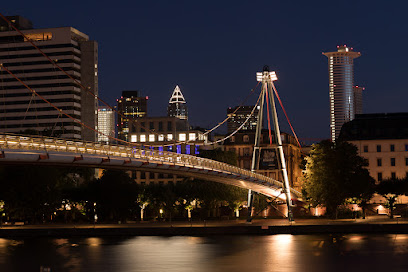
Gallusanlage
Discover Gallusanlage, Frankfurt's serene park where nature meets urban life, offering a refreshing escape in the city's bustling heart and a tranquil retreat for locals and tourists.
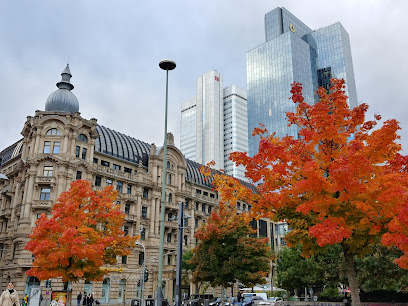
Willy-Brandt-Platz, Frankfurt
Experience Frankfurt's vibrant heart at Willy-Brandt-Platz, a dynamic square where modern architecture meets cultural landmarks, offering a glimpse into the city's rich history and financial power.
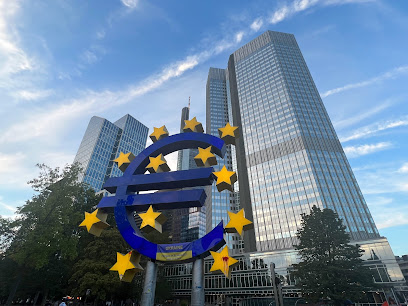
Frankfurter Märchenbrunnen
Discover Frankfurt's enchanting Märchenbrunnen, a stunning Art Nouveau fountain featuring fairy tale characters, nestled near Willy-Brandt-Platz and the Frankfurt Opera.
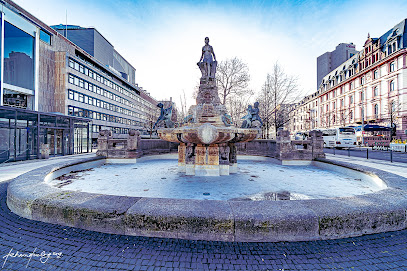
Frankfurt Bahnhofsviertel
Explore Frankfurt's Bahnhofsviertel: A vibrant district where cultures collide, offering diverse cuisine, edgy nightlife, and a glimpse into the city's dynamic urban soul, all steps from the main station.
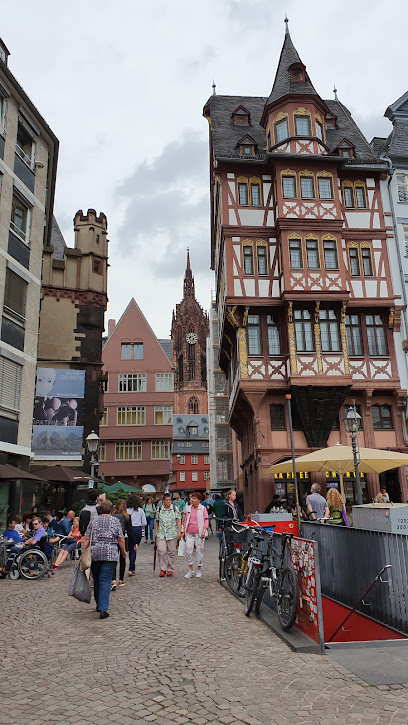
White Cubes
Discover the White Cubes in Frankfurt's Gallusanlage, a minimalist sculpture by Sol LeWitt offering a moment of contemplation amidst the city's bustling financial district, near the English Theatre.
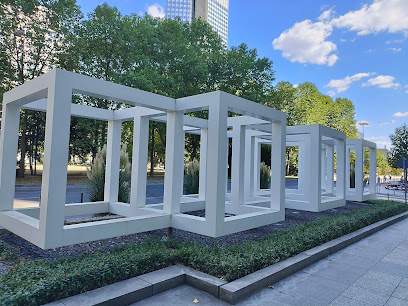
Silver Tower
An iconic Frankfurt skyscraper, the Silver Tower reflects the city's modern architecture and financial prowess, offering a glimpse into its dynamic history and skyline.
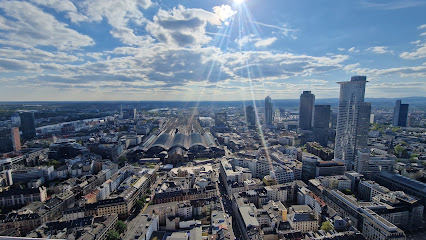
Ponto Brunnen
A serene urban oasis in Frankfurt's financial district, the Ponto Brunnen offers a tranquil escape with its shimmering mosaics, cascading water, and monumental granite, honoring Jürgen Ponto's legacy.
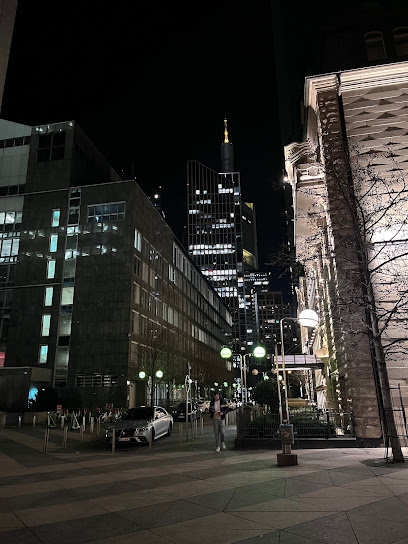
Unmissable attractions to see
Marshall-Brunnen
Discover the historical charm of Marshall-Brunnen, a serene landmark in the heart of Frankfurt, perfect for relaxation and cultural exploration.
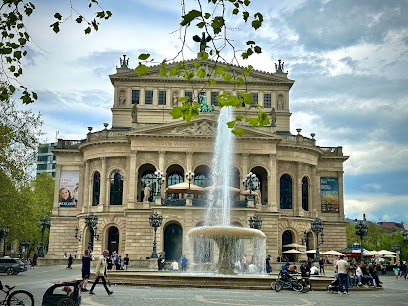
Frankfurt Bahnhofsviertel
Discover the eclectic charm of Frankfurt Bahnhofsviertel, a lively district full of culture, cuisine, and captivating nightlife.
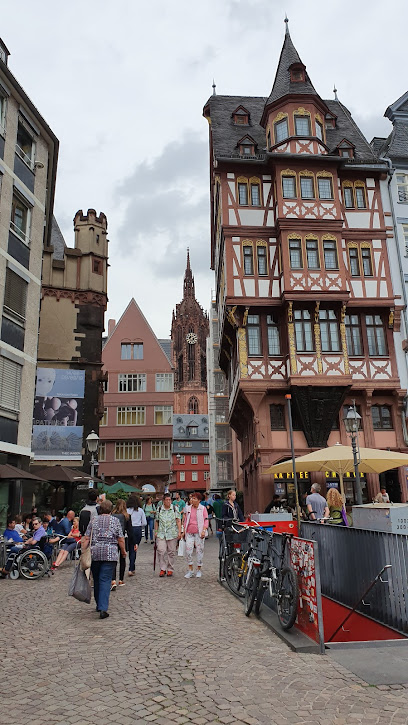
Essential places to dine
Der Fette Bulle
Experience gourmet burgers at Der Fette Bulle in Frankfurt—where every bite is a celebration of flavor and creativity.
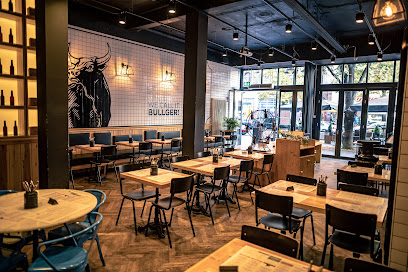
Im Herzen Afrikas
Experience authentic Eritrean cuisine in Frankfurt at Im Herzen Afrikas - where flavor meets culture.
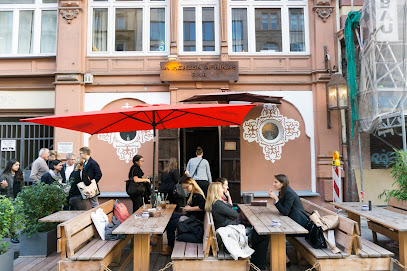
eatDOORI Indian Restaurant
Experience authentic Indian cuisine at eatDOORI in Frankfurt - where vibrant flavors meet warm hospitality.
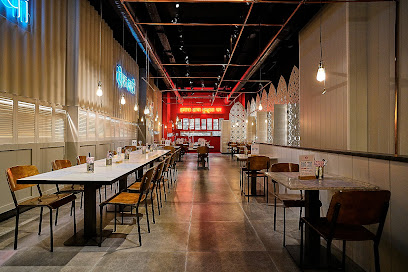
WANNAWAI
Discover WANNAWAI in Frankfurt: Where American cuisine meets fine dining in a vibrant atmosphere.
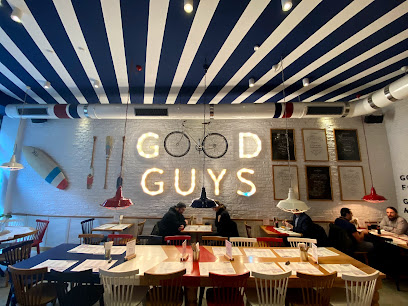
KAKADU'S
Discover KAKADU'S: A lively Australian restaurant in Frankfurt offering delicious food and cocktails amidst vibrant surroundings.
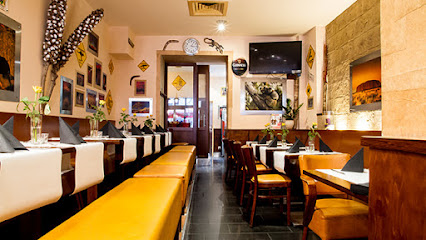
Kabuki
Experience authentic teppanyaki cuisine at Kabuki in Frankfurt - where culinary artistry meets vibrant atmosphere.
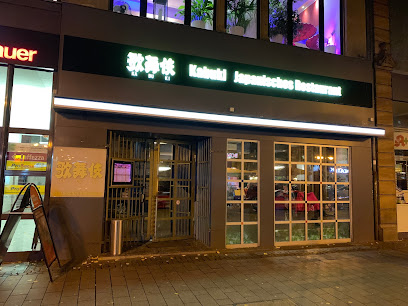
CHILINH Sushi-Restaurant
Savor authentic Japanese flavors at CHILINH Sushi-Restaurant in Frankfurt – where tradition meets modern culinary excellence.
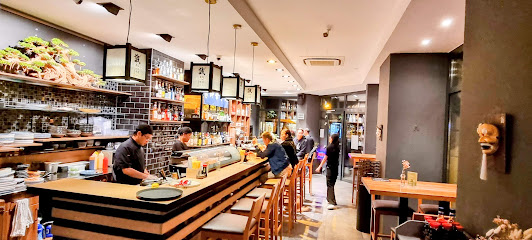
WEINSINN Restaurant
Discover the finest culinary delights at WEINSINN Restaurant in Frankfurt – where innovative dishes meet exceptional service.
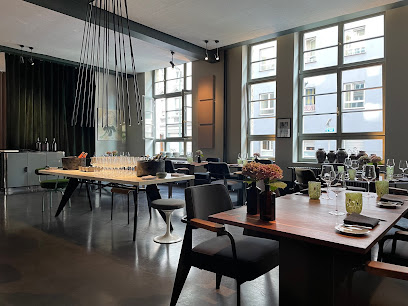
Le Petit Royal Frankfurt
Discover the exquisite flavors of French cuisine at Le Petit Royal Frankfurt – where premium steaks meet seafood delights in an elegant setting.
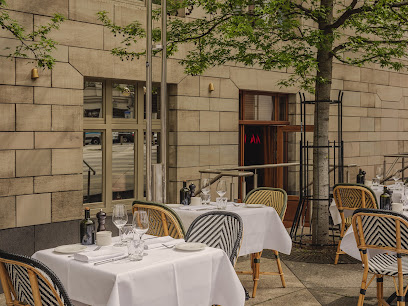
Gabaji restaurant
Experience exceptional dining at Gabaji Restaurant in Frankfurt, where tradition meets innovation in every dish served.
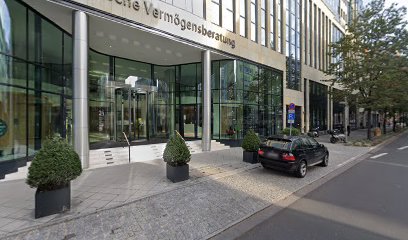
Markets, malls and hidden boutiques
EuroShop
Discover unique gifts and home goods at EuroShop, Frankfurt's go-to destination for affordable souvenirs and delightful finds.
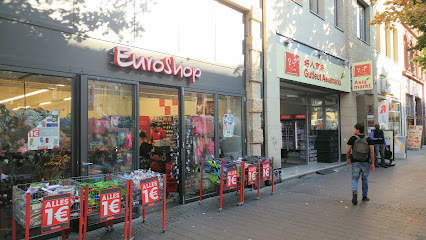
Kaiserpassage
Discover Kaiserpassage, Frankfurt's bustling shopping mall offering diverse shops, delicious dining options, and a vibrant atmosphere.
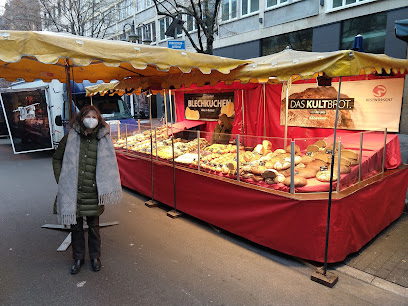
INSTYLE Tax Free Shop 茵时代 免税店
Explore luxury shopping at INSTYLE Tax Free Shop in Frankfurt, where exclusive deals and a vast selection await discerning travelers.
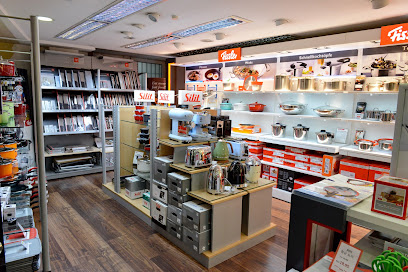
City Shop Kaiser
Discover the convenience of City Shop Kaiser in Frankfurt, where tobacco meets everyday essentials in a lively atmosphere.
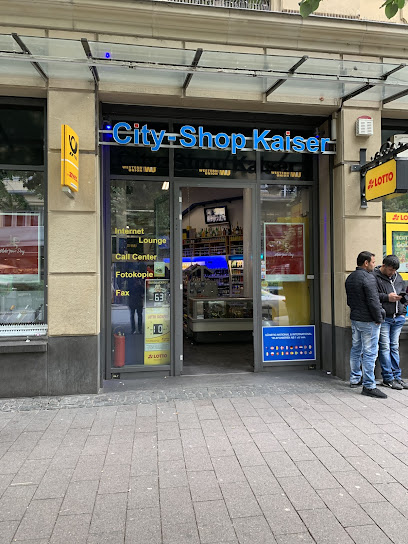
saimas collection frankfurt indian.pakistanische
Explore the vibrant saree collection at Saimas Collection in Frankfurt, celebrating the beauty of Indian and Pakistani fashion with every piece.
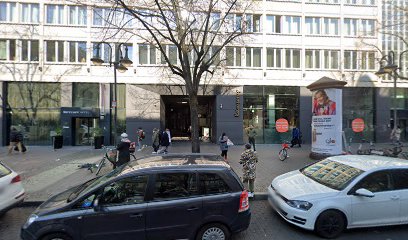
Blue Velvet Derya GmbH
Explore the stylish offerings at Blue Velvet Derya GmbH, a boutique clothing store in Frankfurt, where fashion meets urban flair.
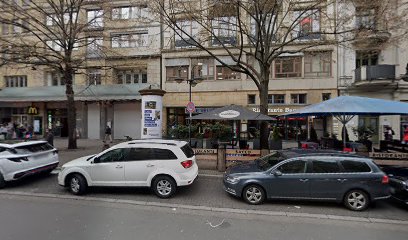
Shoes & Accessories Uebervart
Explore trendy footwear and stylish accessories at Shoes & Accessories Uebervart in Frankfurt am Main. A fashion lover's paradise awaits!
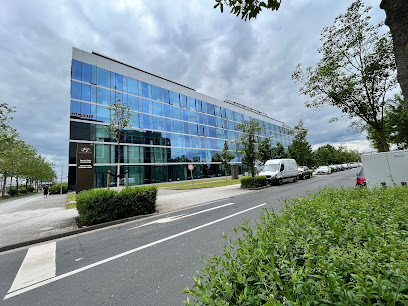
Hiyab Gifts
Discover unique treasures and authentic souvenirs at Hiyab Gifts in Frankfurt, your essential stop for memorable shopping experiences.
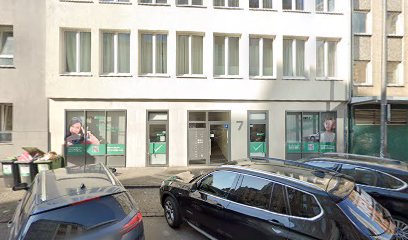
Sec shop
Discover the stylish Sec Shop in Frankfurt, your go-to destination for trendy clothing and an unforgettable shopping experience in the city.

CITY Shop K65
Discover Frankfurt's spirit at CITY Shop K65, where local culture meets eclectic shopping in the heart of the city.
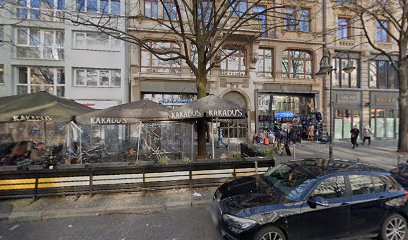
Essential bars & hidden hideouts
Plank Café-Bar-Studio
Experience the vibrant Plank Café-Bar-Studio in Frankfurt - where delightful drinks and a lively ambiance merge for an unforgettable night out.
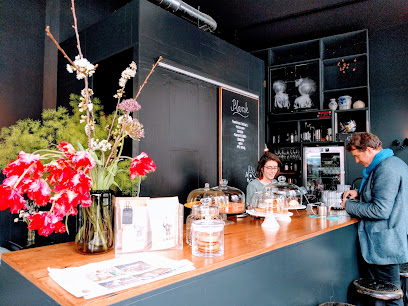
amp
Experience the vibrant nightlife at Amp, a lively bar in Frankfurt, offering great drinks, music, and unforgettable social moments.
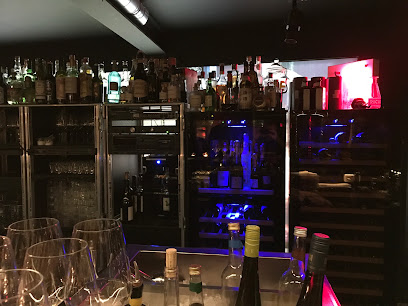
Jambo Bar
Discover the unique charm and vibrant nightlife at Jambo Bar, Frankfurt's go-to cocktail haven for tourists and locals alike.
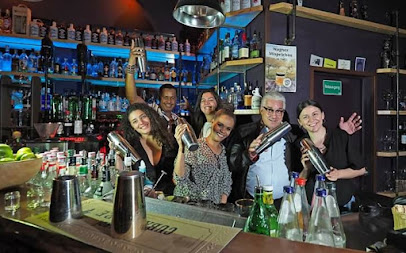
HouseBar 55 - Frankfurt am Main
Experience the pulsating nightlife at HouseBar 55 in Frankfurt, where amazing cocktails meet electrifying dance beats.
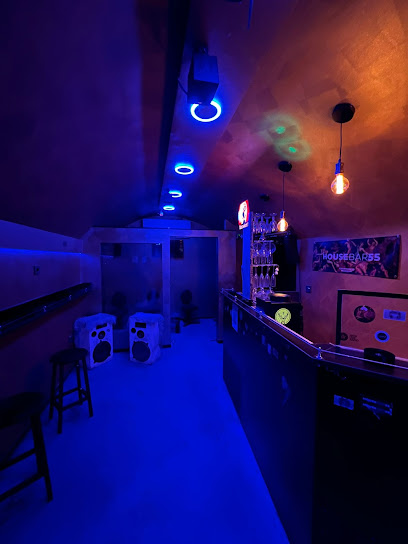
MY WAY Bar & Bistro
Discover the vibrant nightlife at MY WAY Bar & Bistro in Frankfurt, where delicious drinks and a lively atmosphere await.
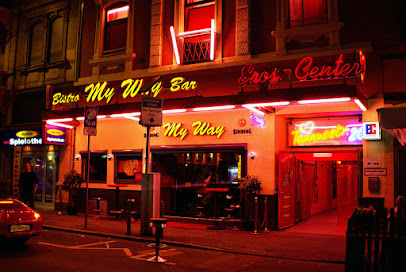
French Bento Bar - Frankfurt am Main
Experience a delightful blend of French cuisine and Japanese bento culture at the French Bento Bar in Frankfurt's lively Innenstadt I district.
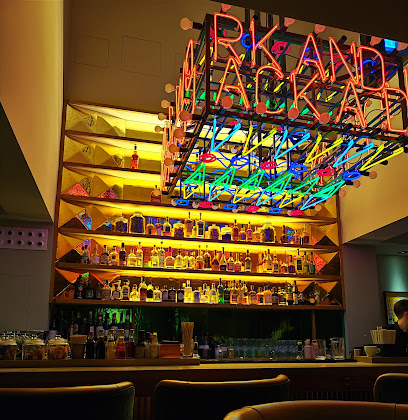
bpm Bar
Experience the lively and cozy vibe of bpm Bar in Frankfurt, where great drinks and a welcoming atmosphere await every visitor.
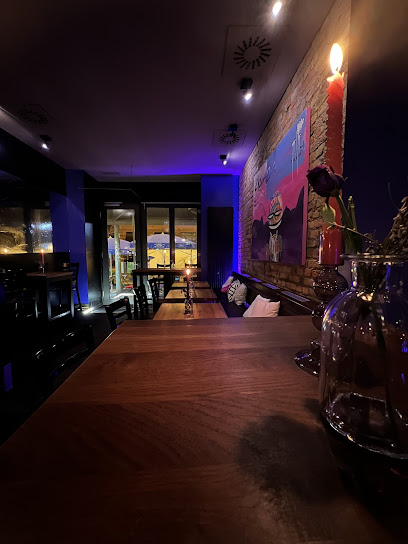
CoCo-LoCo Bar
Discover the vibrant nightlife at CoCo-LoCo Bar in Frankfurt, where eclectic cocktails and a lively atmosphere await every visitor.
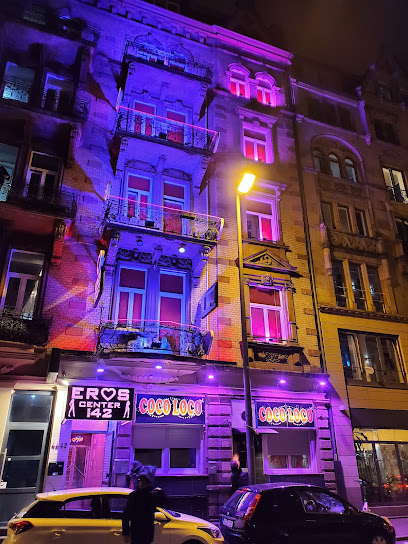
High Five Bar
Experience the vibrant nightlife at High Five Bar in Frankfurt, a perfect spot for cocktails, music, and mingling with locals.
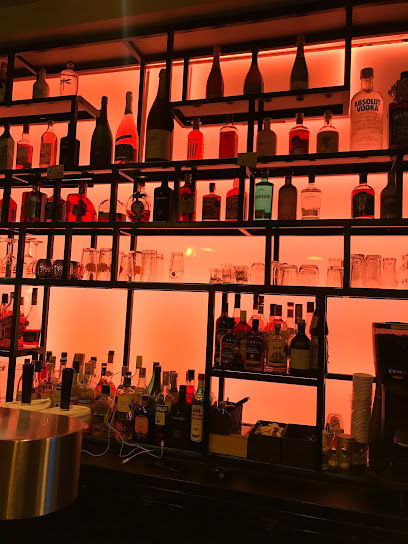
Speakeasy
Unveil the charm of the Prohibition era at Speakeasy, Frankfurt's hidden bar known for its exquisite cocktails and intimate atmosphere.
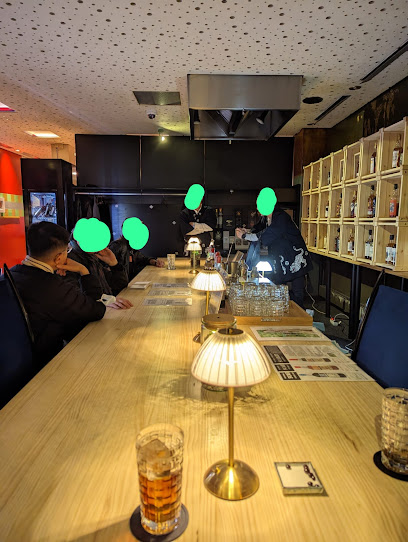
Local Phrases
-
- HelloHallo
[HAH-loh] - GoodbyeAuf Wiedersehen
[ouf VEE-der-zay-en] - YesJa
[yah] - NoNein
[nine] - Please/You're welcomeBitte
[BIT-teh] - Thank youDanke
[DAHN-keh] - Excuse me/SorryEntschuldigung
[ent-SHOOL-di-goong] - How are you?Wie geht es dir?
[vee gayt es deer?] - Fine. And you?Gut. Und dir?
[goot oont deer?] - Do you speak English?Sprechen Sie Englisch?
[SHPRE-khen zee ENG-lish?] - I don't understandIch verstehe nicht
[ikh fer-SHTAY-eh nikht]
- HelloHallo
-
- I'd like to see the menu, pleaseIch möchte bitte die Speisekarte sehen
[ikh merkhte BIT-teh dee SPY-ze-kahr-teh zay-en] - I don't eat meatIch esse kein Fleisch
[ikh EHS-se kine FLY-sh] - Cheers!Prost!
[prohst] - I would like to pay, pleaseIch möchte bitte zahlen
[ikh merkhte BIT-teh ZAH-len]
- I'd like to see the menu, pleaseIch möchte bitte die Speisekarte sehen
-
- Help!Hilfe!
[HIL-feh] - Go away!Geh weg!
[geh vehg] - Call the Police!Rufen Sie die Polizei!
[ROO-fen zee dee poh-LEE-tsye] - Call a doctor!Rufen Sie einen Arzt!
[ROO-fen zee EYE-nen ahrts] - I'm lostIch habe mich verirrt
[ikh HAH-beh meesh fer-EERT] - I'm illMir ist schlecht
[meer ist SHLEKht]
- Help!Hilfe!
-
- I'd like to buy...Ich möchte ... kaufen
[ikh merkhte ... KOW-fen] - I'm just lookingIch schaue nur
[ikh SHOW-eh noor] - How much is it?Wie viel kostet das?
[vee feel KOS-tet dahs] - That's too expensiveDas ist zu teuer
[dahs ist tsoo TOY-er] - Can you lower the price?Können Sie den Preis senken?
[KERN-en zee den prees ZEN-ken]
- I'd like to buy...Ich möchte ... kaufen
-
- What time is it?Wie spät ist es?
[vee SHPAYT ist es] - It's one o'clockEs ist ein Uhr
[es ist iyn oor] - Half past (10)Halb zehn
[halb tsayn] - MorningMorgen
[MOR-gen] - AfternoonNachmittag
[NAKH-mit-tahg] - EveningAbend
[AH-bent] - YesterdayGestern
[ges-tairn] - TodayHeute
[HOI-teh] - TomorrowMorgen
[MOR-gen] - 1Eins
[ines] - 2Zwei
[tsvai] - 3Drei
[dry] - 4Vier
[feer] - 5Fünf
[fuhnf] - 6Sechs
[zeks] - 7Sieben
[zee-ben] - 8Acht
[ahkt] - 9Neun
[noyn] - 10Zehn
[tsayn]
- What time is it?Wie spät ist es?
-
- Where's a/the...?Wo ist ein/der...?
[voh ist iyn/der] - What's the address?Was ist die Adresse?
[vahs ist dee ah-dreh-suh] - Can you show me (on the map)?Können Sie mir das zeigen (auf der Karte)?
[KERN-en zee meer dahs tsay-gen (ouf der KAR-teh)] - When's the next (bus)?Wann kommt der nächste (Bus)?
[vahn kohmt der NEKH-steh (boos)] - A ticket (to ....)Eine Fahrkarte (nach ....)
[IY-neh FAHR-kahr-teh (nakh)]
- Where's a/the...?Wo ist ein/der...?
History of Bahnhofsviertel
-
Bahnhofsviertel, located adjacent to Frankfurt's main train station, began to take shape in the mid-19th century. As Frankfurt became a key hub in Germany's rail network, the area transformed from a rural landscape into a bustling urban neighborhood. The development was driven by the influx of travelers and merchants, establishing Bahnhofsviertel as a vital commercial and transportation center.
-
In the early 20th century, Bahnhofsviertel emerged as a cultural melting pot, attracting immigrants and diverse communities. This influx contributed to the area's vibrant atmosphere, with the establishment of various shops, restaurants, and cultural venues reflecting the multicultural influences. The neighborhood became known for its lively street life and diverse culinary offerings, showcasing flavors from around the world.
-
The devastation of World War II had a profound impact on Bahnhofsviertel. The area suffered extensive damage during the air raids on Frankfurt, which targeted the railway infrastructure. Post-war reconstruction efforts focused on revitalizing the neighborhood, leading to a mix of modernist architecture alongside remnants of the pre-war structures, illustrating the resilience and adaptability of the community.
-
From the 1970s onwards, Bahnhofsviertel developed a reputation as a red-light district, with an increase in sex work and adult entertainment establishments. This transformation brought both challenges and stigma to the neighborhood, but it also became a focal point for discussions around urban policy, safety, and social services in Frankfurt. Efforts to address the complexities of the area led to ongoing debates about gentrification and urban renewal.
-
In recent years, Bahnhofsviertel has undergone significant revitalization, with urban development projects aimed at improving infrastructure and enhancing the quality of life for residents. The transformation has attracted new businesses, cafes, and cultural initiatives, leading to a gradual gentrification of the area. This shift has sparked conversations about preserving the neighborhood's unique character while accommodating a growing population and evolving demographics.
Bahnhofsviertel Essentials
-
Bahnhofsviertel is conveniently located near Frankfurt Hauptbahnhof (main train station), which is the largest railway hub in Germany. From other neighbourhoods in Frankfurt, you can easily reach Bahnhofsviertel via the S-Bahn (commuter trains) or U-Bahn (subway). The most direct route is to take any S-Bahn line that stops at Hauptbahnhof. If you're coming from Frankfurt Airport, the S8 or S9 trains will take you directly to the main station in about 15 minutes.
-
Bahnhofsviertel is a compact area that is best explored on foot. The U-Bahn and tram services are also available for longer distances, with stations located at key points throughout the neighbourhood. You can purchase a Frankfurt Card for unlimited travel on public transport. Bicycles are a popular option, and there are several bike rental services around, making it easy to navigate the area at your own pace.
-
Bahnhofsviertel has a mixed reputation regarding safety. While many parts are safe for tourists, certain areas, particularly around the eastern part of the neighbourhood, can experience higher crime rates, including petty theft and drug-related activities. It is advisable to stay alert, especially at night, and to avoid deserted streets. Always keep your belongings secure and be cautious when approached by strangers.
-
In case of an emergency, dial 112 for police, fire, or medical assistance. The nearest hospital is the Frankfurt University Hospital, located a short distance from Bahnhofsviertel. It is recommended to have travel insurance that covers emergencies. For minor health issues, pharmacies are available throughout the neighbourhood, often marked by a green cross.
-
Fashion: Do dress comfortably and casually; however, avoid overly revealing attire, especially in certain establishments. Religion: Do respect local customs and the diverse cultures present in Bahnhofsviertel. Public Transport: Do validate your ticket before boarding and keep it handy, as there are checks. Don't take up more than one seat on public transport, especially during peak hours. Greetings: Do greet with a friendly 'Hallo' or 'Guten Tag.' Don't assume familiarity; use titles and surnames unless invited to do otherwise. Eating & Drinking: Do try local specialties at street food stalls and cafes. Don't eat while walking in the streets; it's considered impolite in local culture.
-
To experience Bahnhofsviertel like a local, explore the diverse dining options ranging from traditional German cuisine to international flavors, particularly in the area's numerous ethnic restaurants. Visit local markets and small shops for unique souvenirs. Engage with local residents and learn about the neighbourhood's vibrant history. Consider joining a guided walking tour to gain deeper insights into the area's culture and architecture, particularly the historic buildings near the main station.
-
When interacting with locals, it is important to be polite and maintain a respectful demeanor. Germans value punctuality, so be on time for any scheduled meetings or events. Tipping is customary in restaurants, usually around 5-10% of the bill. Always say 'Danke' (thank you) when receiving service or help, as it reflects good manners.
Nearby Cities to Bahnhofsviertel
-
Things To Do in Heidelberg
-
Things To Do in Koblenz
-
Things To Do in Wurzburg
-
Things To Do in Bonn
-
Things To Do in Rothenburg ob der Tauber
-
Things To Do in Cologne
-
Things To Do in Stuttgart
-
Things To Do in Echternach
-
Things To Do in Grevenmacher
-
Things To Do in Remich
-
Things To Do in Vianden
-
Things To Do in Diekirch
-
Things To Do in Dusseldorf
-
Things To Do in Strasbourg
-
Things To Do in Clervaux









